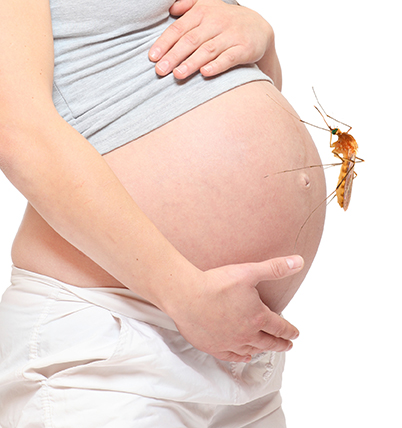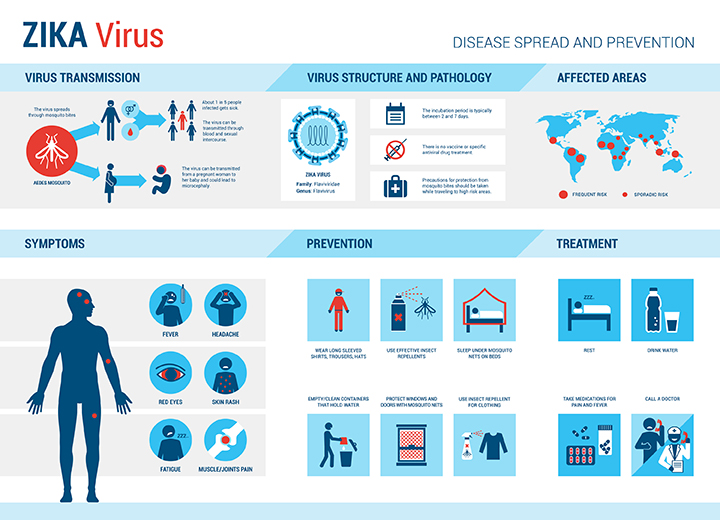TORONTO - ASHLEY ONADELE and her husband Babatunde love to travel: they’ve taken trips to Mexico, the Dominican Republic, Jamaica, England, Spain, Austria and as far as Thailand.
Their next destination?
It was supposed to be a hiking trip through Macchu Picchu last April. The tour, flights and hotel were all booked.
They were even planning an annual trip down south to get away from the cold this winter. But the Zika virus threw a wrench into their plans.
Onadele, 28, is pregnant and due in early March. The expectant mom doesn’t want to risk the health of her baby as the mosquito-borne virus makes its way through South America and the Caribbean.


Above: Even though Zika has subsided since its peak in 2016, some couples like Ashley and Babatunde Onadele have concerns.
“We’d started hearing horror stories about Zika when we returned home from Thailand in January 2016. We’d also had Puerto Rico on the calendar for late May which was a no brainer — we had to cancel that one as Zika was already confirmed on the island. And while we love to get away, especially for New Year's, the Caribbean is out of the question because of the virus,” Onadele told TraveLife magazine.
They were extra cautious about Peru: Zika wasn’t in the area when they cancelled their trip, but they worried it’d be there by the time their trip started. The couple wasn’t even pregnant yet, but they were worried about the long-term repercussions of catching the virus.
“We didn’t want to risk it. There isn’t enough concrete evidence about how long the virus stays in your system and that was our main concern. Nobody could tell us that we would be safe to try for a baby in three, six, or nine months,” Onadele said.
What you need to know about Zika virus:
The Onadeles aren’t alone. The Zika virus has touched virtually every part of the Americas, except for Canada and Chile because their climates aren’t well-suited for the mosquitoes that transmits the virus to breed.
But the virus has been reported in popular tourist destinations, such as Aruba, the Bahamas, Cuba, Mexico, Jamaica, Saint Lucia and Dominican Republic and even parts of the U.S., especially Florida, according to the World Health Organization.
Like Dengue, West Nile and Yellow fever, the Zika virus is a mosquito-borne tropical disease, meaning the insects transmit the disease to humans.
It first appeared in Brazil in May 2015. Months later, health officials noted a rise in rare birth defects in the country. Zika has been tied to a 20-fold increase in the number of newborns with microcephaly, in which babies are born with irregularly small heads and underdeveloped brains.
Dr. Isaac Bogoch, a tropical infectious disease specialist at Toronto General Hospital and the University of Toronto, said that Onadele is wise to stay away from Zika-affected areas.
“Pregnant women should not travel to areas plagued with the Zika virus and if they are travelling, they need to take every precaution to not get bitten by mosquitoes,” Bogoch warned.
“The list of complications that could affect a developing baby has grown. It’s not just microcephaly, but it’s hearing and visual impairment, problems with bones and joints forming and they are looking into the long-term cognitive impairments in these children now.
"You should definitely stay away — pregnant women are aware of this message and aren’t going,” he said.
He echoes sentiments out of the WHO, the U.S. Centers for Disease Control and global public health departments: they’re all advising against travel to Zika-affected regions if you’re pregnant.
If you’re hoping to have a baby within the following months after a trip, you and your partner need to avoid travel to certain areas, too.
The CDC, for example, advises women and men who have been diagnosed with Zika or had possible exposure to wait at least eight weeks before trying to get pregnant.
Men need to wait at least six months after their first symptoms appeared or from their last possible Zika virus exposure before trying to conceive.
“Given the limited data available, men and women with possible Zika virus exposure might choose to wait longer than the recommended time period to conceive, depending on individual circumstances and risk tolerance,” the CDC warns.
In the meantime, men or women who have travelled to Zika-affected areas should stick to condoms, or other forms of birth control, for the two-month period.

Travel options for pregnant women:
But if you’re expecting or planning a family, there are other options, according to Julie Smigadis from Flight Centre.
Travellers seeking sun for a “babymoon” are turning to other destinations, such as Hawaii, California, Tahiti, Australia, New Zealand and parts of Asia — so far, Zika is only in Singapore on the continent, the WHO is reporting.
If you aren’t pregnant, but are worried about contracting Zika, Smigadis said tourist hotspots are working hard at keeping mosquitoes at bay.
“Most resorts in Mexico and the Caribbean already have mosquito prevention and eradication procedures in place and have simply been more diligent,” Smigadis said.
Sandals, for example, said that it fogs its resorts and the surrounding area twice a day while actively removing all identifiable potential mosquito breeding grounds.
For now, Onadele is putting travel on the back burner. She and her husband considered Hawaii for a “babymoon” but they’ve opted to put their travel budget towards expenses for their growing family.
“I was hoping this would be the year we got to explore some of South America but seeing as the whole continent is in a state of panic with Zika, we’re sitting tight right now,” she said.
“We’ve got a few destinations on our minds for next year when the baby arrives,” she said, naming Rome, London and New York City as the top of the couple’s 2017 travel list.